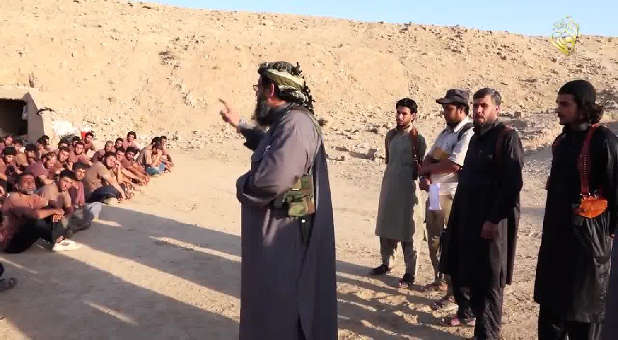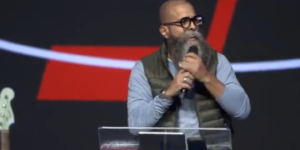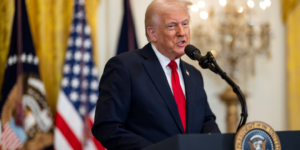Why Iran Is Really Fighting Against Islamic State
It says something about the depths of worldwide revulsion to the self-proclaimed “Islamic State” that Western powers such as the US and the UK have been sitting at the same table with Iran to discuss how to defeat the deadly Islamist movement that has taken control of a large part of Iraq and Syria.
The US has said that the rise of IS, a radical jihadist Sunni movement, is not only a threat to the region, but to the whole world. Iran, as the regional Shia Islamic power, is a sworn enemy of IS because IS regards Shia believers as heretics who should be killed.
So it’s perhaps not surprising that, on this basis alone, the British Prime Minister David Cameron met with Iranian President Hassan Rouhani at the U.N. General Assembly recently—the first such meeting since the Iranian Revolution in 1979.
Their meeting came soon after the US and its allies from 10 Arab countries, including Egypt, Iraq, Jordan, Lebanon and six Gulf states, began air strikes against IS in Syria in a coordinated military campaign to hamper IS after the beheadings and threats against westerners, most specifically America and Israel.
While US Secretary of State John Kerry had opposed Iran’s attendance, in Paris in September, at an international conference on helping the new Iraqi government fight IS, he stressed that he was still prepared to discuss Iraq and Syria with the Iranians. Iranian officials, meanwhile, insisted they had rejected multiple invitations by the US to join the coalition.
While such “enemy of my enemy is my friend” tactics might seem unlikely to some, others do not want the West to forget that the Islamic Republic of Iran shares some of the same beliefs, if not methods, of IS, which have led to religious intolerance and ongoing human-rights abuses.
Islamic State’s Caliphate
A World Watch Monitor report in September outlined the specific threats of IS and explained its desire to extend its self-proclaimed caliphate beyond the borders of Iraq and Syria, ultimately over the entire globe.
Those ambitions were reflected in the name change from Islamic State of Iraq and the Levant, or ISIL, to simply Islamic State, or IS, a name that regards no boundaries.
In its efforts to set up and maintain a pure Islamic caliphate, IS is using all means necessary, including the use of extreme violence. In cities that have fallen to IS elements, those who remain have been offered the infamous bargain: “We offer them three choices: Islam, the dhimmi contract (an ancient Islamic law involving paying a security tax called ‘jizya’), and if they refuse this they have nothing but the sword.”
The majority who have been affected are non-Sunni Muslims, but non-Muslims such as Yazidis and Christians have also been targeted.
Iran’s Islamic Empire Aspirations?
A ‘caliphate’ is a Sunni concept, so Shiite Iran would not describe its aspirations with the same language, but Shia Islam has global aspirations as well.
According to Iranian Reza Kahlili, a former Iranian Revolutionary Guard member who then continued to work as a CIA agent, Shia Muslims are awaiting the coming of the twelfth imam,who is promised to establish a global Islamic empire.
“Ever since the Iranian Revolution of 1979, the Islamic rulers of Iran have declared themselves representatives of God on Earth, believing their mission is to pave the way for the reappearance of the last messiah, the Shiites’ twelfth imam Mahdi,” Kahlili said.
On his website in 2011, Kahili said a video distributed within Iran indicated the Arab Uprisings were one of the signs that the coming of the twelfth imam is near. He said it was produced by an Iranian organization called “Conductors of The Coming” in collaboration with the Iranian President’s office and the Basij, the Iranian Paramilitary Force.
At the beginning of September this year, in the most recent biennial national meeting of Iran’s Assembly of Experts, Supreme Leader Ayatollah Ali Khamenei said the world is entering a “new order” and that the officials in the Islamic Republic need to be aware of the changes and prepare to play a role in the new context. He said the nation has had years of strategic investment in gaining more power outside Iran, for example through Hezbollah, a Shiite Islamist militant group and political party based in Lebanon.
“IS has a dream to dominate Lebanon and to announce it as a part of the Islamic State and I believe they would be in Lebanon right now if Hezbollah hadn’t been helping our forces fight IS at our Northern border,” said Lebanese Archbishop Elias Nassar, speaking to World Watch Monitor.
“I think Iran is doing a good job of fighting IS in this case, and maybe it is helping more than it is damaging the situation,” Nassar said. “What we are seeing is Iran providing the help we anticipated from Western countries.”
However, soon after IS’ beheading of the American journalist James Foley, former US Secretary of State Henry Kissinger told National Public Radio that, “Iran is a bigger problem than Islamic State” because of its ambitions to Islamic empire.
Iran’s Secretary of Expediency Council Mohsen Rezaei denied the claim, saying, “Iran has no reason to create an empire.”
However, Amir Basiri, an Iranian human rights activist, argues it is time for the international community to recognize that Iran is the common denominator of chaos in the Middle East.
“Iran is the main beneficiary of the Islamic State’s rampage,” Basiri wrote in a column for Forbes.
“As a state-sponsor of terrorism and fundamentalism, and one of the regimes with the worst human rights records across the globe…the Iranian regime has used the rise of the Islamic State as an excuse to surge thousands of troops through the porous Iran-Iraq border and notch up the violent activities of its many proxy militia groups in the country,” he wrote. “But rather than fighting the Islamic State, Iran’s real agenda is to expand and strengthen its hold on Iraqi soil and politics.”
Shia Muslims are the minority sect of Islam, constituting only about 12 percent of the world’s 1.3 billion Muslims. So far, the Shiite population in Iraq has not accepted Sunni IS.
“It is important to stress the large differences between Sunni and Shia Islam,” said Henriette Kats, an analyst at Open Doors International, a global charity that supports Christians under pressure for their faith. “What I do see is that throughout the years, Iran is has been trying to unite Muslims, focusing mainly on their Shia allies such as Iraq, Syria [President Assad is Alawite, an offspring sect of Shiite Islam] and Hezbollah, while also funding Hamas, which is Sunni, in their aversion to, and battle against, America and Israel.
“Under President Rouhani this anti-Western attitude is more concealed,” Kats said. “Due to its dire economic circumstances, Iran is in need of good relations with the West.”


























































